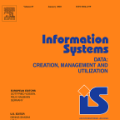It is undeniable that people life patterns and technological developments are interrelated within a supply and demand cycle. In the education world, the emergence of the internet and mobile technologies has opened the learning boundaries through the use of mobile learning (m-learning). In Indonesia, the learning service industry has been begun to enliven the outside school education sector for almost five years ago. Even though the learning has been discussed around a decade ago, however, it is still rare studies that discuss the performance of the m-learning system based on the end-user perceptions in particular. Therefore, the study may still indispensable, especially from the perspectives of a developing nation. This paper elucidates the preliminary stage results of the above-mentioned study, including the results of the model development and its instrument testing. The DeLone and Mclean information system (IS) success model was adopted, combined with the individual motivation and organizational culture theories, and then adapted into the processional and causal logic of the success model. Around 50 respondent data were collected online and processed and analyzed based on the outer model assessments of the PLS-SEM method using SmartPLS 3.0 to know the reliability and validity of each indicator. The result shows that two of 31 are rejected indicators. The rejections may be the revision considerations for the next study stages. Although this may be trivial for experts, the clarity of its methodological explanations may guide the novice researchers, how to develop a research model and its instrument testing.
翻译:不可否认的是,人们的生活模式和技术发展是在供求周期内相互关联的;在教育界,互联网和移动技术的出现通过使用移动学习(远程学习)打开了学习界限;在印度尼西亚,学习服务行业在近五年前开始使校外教育部门活跃起来;尽管大约在十年前已经讨论了学习过程,但是,现在仍然很少进行一些研究,讨论特别是基于最终用户认识的M-学习系统的绩效;因此,这项研究可能仍然不可或缺,特别是从发展中国家的角度来说;本文件阐述了上述研究的初步阶段成果,包括模型开发及其仪器测试的结果;在印度尼西亚,学习服务行业在近五年前已开始使校外学校教育部门活跃起来;尽管大约十年前就学习过程和因果关系进行了讨论,但现在仍然很少进行这样的研究;大约50个答复者的数据是在利用智能PLS3.0对PRS-SEM方法进行外部模型评估的基础上收集、处理和分析的;本文件阐述了上述研究的初步阶段的结果,包括模型开发及其仪器测试的结果;DeLone和Mlean信息系统(IS)的成功模式,连同个人动机和组织文化理论,后来又被修改过。








